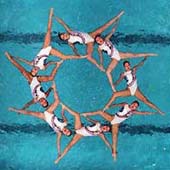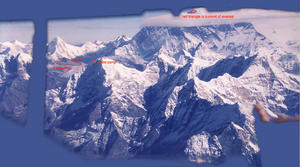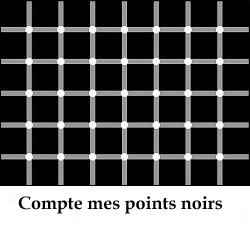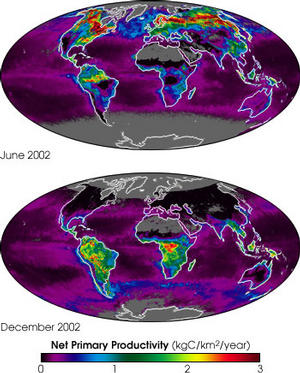|
This is my dynamic, frequently updated homepage. This is a NewsLog, also known as a WebLog or Blog.
Everything is evolving, so don't assume too much.
People to watch:
Adina Levin
Andrius Kulikauskas
Britt Blaser
Catherine Austin Fitts
Chris Corrigan
Clay Shirky
Dan Gillmor
Dave Pollard
David Allen
David Weinberger
Dewayne Mikkelson
Dina Mehta
Doc Searls
Elisabet Sahtouris
Elizabeth Lawley
Euan Semple
Florian Brody
Frank Patrick
Gen Kenai
George Dafermos
George Por
Graham Hancock
Greg Elin
Hazel Henderson
Heiner Benking
Inspector Lohman
Jean Houston
Jerry Michalski
Jim McGee
Jim Moore
John Abbe
John Perry Barlow
John Robb
Joi Ito
Jon Husband
Jon Lebkowsky
Jon Udell
Jonathan Peterson
Judith Meskill
Julian Elvé
Julie Solheim
Kevin Marks
Lawrence Lessig
Leif Smith
Letecia Layson
Lilia Efimova
Lisa Rein
Marc Canter
Mark Oeltjenbruns
Mark Pilgrim
Mark Woods
Martin Dugage
Martin Roell
Mary Forest
Matt Mower
Max Sandor
Michael Fagan
Mike Owens
Mikel Maron
Mitch Kapor
Mitch Ratcliffe
Nathalie dArbeloff
Netron
Noam Chomsky
Paul Hughes
Peter Kaminski
Phil Wolff
Philippe Beaudoin
Ray Ozzie
Raymond Powers
Rebecca Blood
Roger Eaton
Roland Tanglao
Ross Mayfield
Scott Lemon
Sebastian Fiedler
Sebastien Paquet
Skip Lancaster
Spike Hall
Steven Johnson
Stuart Henshall
Thomas Burg
Thomas Madsen-Mygdal
Thomas Nicholls
Timothy Wilken
Todd Suomela
Tom Atlee
Tom Munnecke
Tom Tomorrow
Ton Zijlstra
Lionel Bruel
Loic Le Meur
Nancy White
Mark Frazier
Merlin Silk
Robert Paterson
Colby Stuart
Nova Spivack
Dan Brickley
Ariane Kiss
Vanessa Miemis
Bernd Nurnberger
Sites to watch:
Electronic Frontier Foundation
Co-intelligence Institute
Free Expression Network
Collective Intelligence
Action without borders
Manufacturing Dissent
Explorers Foundation
Disclosure Project
ThoughtsOnThinking
Forbidden Science
Emergent by Design
Greater Democracy
Global Ideas Bank
Independent Media
Space Collective
Friendly Favors
Escape Velocity
Disinformation
Collective Web
WorldChanging
YES Magazine
Disinfopedia
NotThisBody
MetaFilter
Webcamorama
BoingBoing
Smart Mobs
Do No Harm
Imaginify
FutureHi
Openworld
Nanodot
HeadMap
Rhizome
Absara
Edge
Junto
French:
Emmanuelle
Manur
Elanceur
Loeil de Mouche
IokanaaN
Blog d'Or
Le Petit Calepin
GeeBlog
Absara
Guillaume Beuvelot
Ming Chau
Serge Levan
Jean Michel Billaut
C'est pas Mécanique

I live in Toulouse, France where the time now is:
01:08
Unique Readers:

Primarily
Public Domain
Everything I've written here is dedicated to the
Public Domain.

The quotes from other people's writings, and the pictures used might or might not be copyrighted, but are considered fair use. Thus, overall, this weblog could best be described as being:
Primarily Public Domain. |
Syndication:
 ![Validate my RSS feed [Valid RSS]](http://www.newciv.org/pic/valid-rss.png)
|
| Wednesday, May 7, 2003 |  |
|
|
|
 I used to imagine that it was possible to make people sane by working them through a certain regimen, a certain sequence of progressively more advanced steps. That there would be a methodology that could be applied to just about anybody, and the end result would be a sane and rational human being. I used to imagine that it was possible to make people sane by working them through a certain regimen, a certain sequence of progressively more advanced steps. That there would be a methodology that could be applied to just about anybody, and the end result would be a sane and rational human being.
I'm not saying I no longer believe that it is possible, but I've sort of lost touch with that way of looking at things, and I have more reasons to be doubtful than I used to.
A.E. van Vogt wrote a series of science fiction books in the 50s about the world of "null-A". They would make the most sense to somebody who had studied general semantics, and they were essentially a fictional description of a world where general semantics principles were put to serious use. An elite corps of individuals were trained in infinite valued logic, the awareness of abstraction, and the ability to create a semantic pause, where you step back from all the inadequate perceptions, limiting concepts, reactions and emotions, and examine what is actually going on before you act. Somebody who could think clearly and rationally, on multiple levels, taking all factors into consideration, no matter the circumstances. And, well, despite that Korzybski had outlined such principles in considerable detail, no such corps of rational people has been assembled in our world. Maybe because he outlined the principles, but not necessarily the techniques for getting people to live them. Maybe because it is more complicated than that.
Many years ago I was a scientologist. More than 20 years since I was kicked out of Scientology. One of the key endeavors in Scientology is to develop individuals into a state called "clear". A clear would be a person who no longer has irrational reactions to what he experiences in life. I.e. no more blind push-button reactions, where one ends up doing something that one doesn't want and which doesn't work. Where one unconsciously does something destructive instead of what serves the circumstances best. Where one walks around in a hypnotic state, responding to distorted commands from one's subconscious mind, rather than being aware, awake and present in the moment. And, well, there are systematic methods for locating and transforming these various areas. And when one has reached a certain state where one is more powerful than one's subconscious, and actually able to make one's own conscious and rational decisions about things, that's when one is labeled "clear". I became a clear, and there certainly is something to it. You can systematically become more sane. However, since then I've more and more taken it with a grain of salt, and realized that it wasn't quite as absolute and permanent a state of being as it appeared. Nevertheless, it became part of who I am.
For many years after that I would predominantly hang out with people who were "doing their work" as it is often called in new age circles. In part because I was a professional counselor who would facilitate personal change. So, I was mostly paying attention to people who were on a path of personal development, who were working in their own way on being more sane, more present, more whole. Maybe they were meditating, maybe they were getting therapy, maybe they were rewiring their own minds with NLP. But they were doing something, and even though it would be many different disciplines, there would be a certain underlying agreement about the value of being more awake, empowered, enlightened, whole, or whatever it might be called.
At some point I stopped bothering seeking out that kind of people. In part because I'm interested in life as it really is, in whatever form it takes, and it was a little boring just hanging out with people who had the same kinds of views on things. Great gifts might appear in unexpected places. The truth might be spoken where you least expect it. Life is something to experience, not to just sit and be holy about.
But now, to get to my point. We live in a world where there's no generally agreed upon norm for what is sane and what isn't. We aren't being trained in identifying what is sane and what is less sane. We aren't being trained in thinking. We aren't being trained in recognizing truth or deception.
The people who are supposed to be the certified specialists in such things often have the least clue. Oh, there are some brilliant and prominent psychiatrists around, who somehow have managed to maintain an intuition for what people need. But aside from that, I don't think I've enountered such a concentration of lunatics in any other field. That's not what I wanted to rant about, however.
My point is more personal. I somehow have an implicit assumption that the people I deal with have gone through a path in life that somehow is equivalent to mine. Not doing the same things, but somehow having similar experiences, learning similar things, and ending up with some kind of mature sanity about life. And the thing is that I'm more and more noticing that that is not the case at all. Many people have made it this far in life without ever "working on themselves". Many people have adopted some kind of fixed solution to everything, making themselves right and others wrong. Religious dogma, fundamentalist materialism, self-centered cosmology, everybody else is an asshole kind of beliefs.
See, if I were a counselor and you came to see me to fix that kind of personal problems, I'm thoroughly trained and educated in helping you out of such limiting beliefs. But if you don't, I have neither the right nor the means to disabuse you of very much that you believe in. And what I realize I'm missing nowadays is a shared frame of reference. Many human relations remain dysfunctional, or end in a word-against-word impasse, because there is no shared methodology available for bringing back sanity. "You're an asshole! No, YOU are!!" Hard to sort out unless we agreed to a shared frame of reference and a shared ethic from the start.
If you're part of some group that has a shared standard and a shared frame of reference, life is so much easier, even if the frame of reference is itself flawed. If you're a religious fundamentalist, you'll have a book where you can look up what is wrong with other people. They're sinners, they eat meat on Thursdays, they use bad words. They just need to act the right way and say the right words, and they're back on track. If you're a scientologist you notice when people act irrationally, and you know that if they'll just do their next level of clearing, they'll be better. If you belong to an -ism, you probably have tests of whether somebody is in their right mind or not, and you're have solutions handy. Some better than others. But if you don't belong to any -ism, you can't go around correcting other people's lack of sanity. Much of the time you have to just put up with it, ignore it, argue about it, or refuse to work with them, calling them names if necessary.
What I'm afraid of is whether maybe we all on this planet are half-lunatics walking around in our own little private worlds, seeing what we want to see, re-confirming our old beliefs, grumbling about things that didn't even happen, never quite understanding anybody else, other than when they accidentally happen to validate our own beliefs. Uarrrgh!
[ Thoughts | 2003-05-07 14:32 | | PermaLink ] More >
|
|
| Tuesday, May 6, 2003 |  |
|
|
|
 University professor Jared Diamond talks about why societies sometimes make decisions that result in their collapse, or why they fail to make decisions that would have rectified things. University professor Jared Diamond talks about why societies sometimes make decisions that result in their collapse, or why they fail to make decisions that would have rectified things.What I'm going to suggest is a road map of factors in failures of group decision making. I'll divide the answers into a sequence of four somewhat fuzzily delineated categories. First of all, a group may fail to anticipate a problem before the problem actually arrives. Secondly, when the problem arrives, the group may fail to perceive the problem. Then, after they perceive the problem, they may fail even to try to solve the problem. Finally, they may try to solve it but may fail in their attempts to do so. While all this talking about reasons for failure and collapses of society may seem pessimistic, the flip side is optimistic: namely, successful decision-making. Perhaps if we understand the reasons why groups make bad decisions, we can use that knowledge as a check list to help groups make good decisions. There's an interesting little video on the site of him lecturing about it as well. Why is that kind of clarity and simplicity only found scattered among people who lecture and write books? I mean, why aren't people who ask such questions part of running our societies?
Some of what he talks about is environmental mis-management. For example, the people on Easter Island cut down all the forests on their rather small island, to build canoes, roll around statues, and whatever they were doing. Thus they killed the resources their lives depended on, and they started dying off, turning to canibalism, etc. until they had turned themselves into a faint shadown of their former glory. A question is: What did the Easter Islanders think as they were cutting down the last tree? That wasn't any subtle mistake. Did they really not notice? How can we avoid making that kind of mistakes? Or, since we probably already are - how can we truly comprehend that as a society?
[ History | 2003-05-06 23:59 | | PermaLink ] More >
|
|
|
|
 The new matrix movie has premiere here soon. I'm definitely not alone in being excited about that. Paul Hughes on Planet P: The new matrix movie has premiere here soon. I'm definitely not alone in being excited about that. Paul Hughes on Planet P:This article in Slate came out a few days ago and it sums up nicely what I always felt about the matrix after seeing the first film - in the matrix we can do anything. Since the late 1980's after probing in depth the potential of consciousness becoming software via nanotechnology and perhaps quantum computers, I have endeavored to visualize the future of reality enhanced by fully customized hyper-intelligent neurological circuits and synthaesthic hyper-sensory pathways. This potential is the primary theme of my book-in-progress. As this article points out Neo shows us the way:"The real source of the fascination with The Matrix is that, despite all appearances, the movie is not a dystopia. Rather, it's a utopia, a geek paradise. The Matrix is a sci-fi John Hughes movie, in which a misfit learns that he's actually cool. (Think Harry Potter with guns.) At the software company where Keanu Reeves works, his boss might as well be the principal castigating Judd Nelson in The Breakfast Club when he says: "You have a problem with authority, Mr. Anderson. You believe that you are special. That somehow the rules do not apply to you. Obviously, you are mistaken." Of course, we learn that the oppressive Figure of Authority is the one who is mistaken. But instead of going to the prom, Keanu gets to pack heat, learn kung fu, wear a black trench coat and sunglasses, and, to top it off, he gets a hot, ass-kicking girlfriend who sports fetish wear. What kind of dystopia is this?" Read on, more good stuff. Also, if you have broadband, go and see the animated short movie series Animatrix, outlining the history of the matrix.
[ Inspiration | 2003-05-06 23:59 | | PermaLink ] More >
|
|
|
|

Via SynEarth, from Laughter Club International.Madan Kataria writes: In March, 1995, I thought of writing an article on 'Laughter - the best medicine' for 'My Doctor' a health magazine that I edited. When I found a large amount of scientific literature on the benefits of laughter on the human mind and body, I was amazed that very few people laugh and smile in Mumbai. I was very impressed by American journalist Norman Cousins' book 'Anatomy of an Illness' in which he described how he laughed his way out of incurable disease of the spine - Ankylosing Spondylitis. I also read about the research work done by Dr. Lee S. Berk from Loma Linda University, California, who showed how mirthful laughter reduced the stress hormone levels in the body and the effects of laughter on the immune system. Early morning at 4 a.m. on 13th March 1995, I was walking up and down in my living room and suddenly an idea flashed into my mind: If laughter is so good why not start a laughter club? Then I decided not to publish the article, but instead I went to a public park at Lokhandwala Complex, Andheri, in Mumbai and spoke to people about starting a Laughter Club. The remarkable thing about this idea was that I conceived it at 4 a.m. in the morning and within 3 hours a plan was put into action. Hahah, sign me up. We need many of those. They have many splendid initiatives on that site. Corporate laughter seminars. The Laughter Bank. World Laughter Day. Instruction manual for Laughing for No Reason. News about new laughter clubs in Iran, Vietnam, Hungary, etc. ROFL.
[ Inspiration | 2003-05-06 23:59 | 0 comments | PermaLink ]
|
|
|
|
 Reuters: Reuters:JERUSALEM (Reuters) -- An Israeli policeman responding to neighbors' complaints about a rowdy all-female party received an unexpected welcome at the door when revellers mistook him for a stripper and began to take off his clothes and stroke him. "The women had ordered a stripper dressed as a police officer," national police spokesman Gil Kleiman said on Monday. The policeman showed the women his badge but they thought it was part of the act. That's just splendid. So much better than going out and beating people up and arresting them. And now we're at it, imagine we send an army to some other county, and they just think the soldiers are all strippers and they take them inside to touch the hair on their chest and stuff dinars in their underwear. Nobody would get around to that war thing.
[ Inspiration | 2003-05-06 23:59 | | PermaLink ] More >
|
|
| Monday, May 5, 2003 |  |
|
|
|
 What if I'm not a bag of skin? What if I'm not a spirit stuck in the head of such a bag of skin? Nor its brain. Nor its collection of thoughts? What if I'm not a bag of skin? What if I'm not a spirit stuck in the head of such a bag of skin? Nor its brain. Nor its collection of thoughts?
The explanation I'm most used to is that I'm a spirit who temporarily resides in a body, and who moves on to other lives. I didn't believe in being a brain since I was a teenager, before I started looking around and questioning things.
But I'm not sure any of those answers are good enough for me any longer. Even the explanation of being an immortal spirit who jumps around from life to life, that's a little too simplistic and limiting in some ways. Oh, I have plenty of experiences to back it up, but it is not enough.
Logically, as well as intuitively, the ultimate answer can only be that I'm everything, the metaverse, all-that-is, God, whatever you call it. Any explanation that is built on a model of your identity being inherently separate from everything else eventually falls apart. There's just no proof of it. Fundamentalist religions, including the religion of scientific materialism, would like to tell you otherwise. You're a separate and powerless little thing, subject to the whims of a vengeful god, or to the cruel randomness of a meaningless and empty universe. The simplest answer to many puzzles is the connectedness of everything. Fundamental separation requires complicated and fanciful explanations, along the lines of "turtles all the way down". No, whatever I am is some kind of wave, or particle, in the quantum sea. And ultimately, any idea of my identity being anything less than that whole sea would be just a temporary convenience.
But that doesn't help me either. Or maybe it does in a way I don't understand. But I'm looking for the stuff in-between. I'm looking for a better way of understanding what and who I am. A practical way that will be more helpful as our world is accelerating and becoming increasingly multi-dimensional.
I can talk very down-to-earth about that. Technology and societal changes force all of us to move faster and be more multi-tasking. Information overload, instant satisfaction, the global village. But I think all of that is only the surface manifestations of something much bigger. We're evolving. Not just as a cute metaphor, but for real.
Despite far out discoveries in science, quantum mechanics, string theory, 12 dimensional universes, etc, we still go around pretending that the world is the same. Even if you're a scientist, your personal instincts haven't gotten any further than the science of Newton. You instinctively understand gravity and acceleration and movement in 3 dimensions. You have absolutely no instincts about 12 dimensional multi-verses where everything is in a quantum state that depends on everything else, and time is just another fungible dimension, which can run backwards, forwards or sideways. So the easiest is just to close your eyes and pretend it is just some cute, weird theory which doesn't have any bearing on real life. No, its the other way around. The Real World probably IS that weird. And we're largely living in a fantasy world. Or, more kindly, just one particular instantiation of centillions of possibilities. Trying to believe it is the only one is the crazy part. You know, that our game here is the only interesting thing in the multi-verse, and it all rotates around our little 3rd rate planet here.
I suspect our evolution will involve an increased intuitive awareness of some of those weird quantum physics principles. Exactly what, I don't know. I'm still a confused 3 1/2 dimensional human.
Biologically each of us is obviously a "we". A sophisticated cooperative of millions of smaller beings. Each of our cells is already a cooperative of thousands of smaller life forms. So a human body is a pretty huge socialist commune. Does that mean I need to operate as if I'm the elected head of state of this whole organization? Maybe. Maybe I should let the biology run itself, as it runs pretty well without me worrying too much about it. But maybe I'm really another kind of "we". A collection of all the different roles I'm playing. Or, more drastic, maybe all versions of me in many parallel dimensions need to coordinate their actions in some fashion.
Maybe it is more simple, and the real me is just a certain .. feeling, a vibe, a certain quality of how things are done. Maybe I don't have to worry about how I get around, or how I'm packaged, how I'm identified, or whether I understand the cosmology of it all. Maybe I'm just a very unique way of doing things. Maybe I'm just a way of perceiving things. Maybe I'm just the awareness of a certain pattern of information. Maybe I will wake up 5 universes away, if the sun just strikes the trees in the exact right way on a misty spring morning. Maybe I'm already there.
[ Thoughts | 2003-05-05 17:51 | | PermaLink ] More >
|
|
|
|
 CNN: CNN:LONDON, England (Reuters) -- A masked and caped do-gooder has been sweeping through an English town, performing good deeds and scattering terrified bad guys, a local newspaper reported on Friday.
The Kent and Sussex Courier said it had received letters from "stunned residents" of the town of Tunbridge Wells, southeast of London, who saw the man in a brown mask and cape scare off hooligans and return a woman's dropped purse.
"To my great surprise," the paper quoted 21-year-old psychology student Ellen Neville as saying, "a masked man wearing a brown cape rushed past me to assist a woman who was having a bother with a group of youths.
"He swept in, broke up the commotion and ran off, leaving myself and the woman in a state of shock," she said.
A man wrote to say he was being chased by some youths when the hero appeared and "shocked the gang so much they ran off."
Another woman wrote to say the crusader had tapped her on her shoulder to return her purse.
"If only there were more people around with this kind-hearted spirit," she said. Yeah, I think we could all use a caped crusader on our side once in a while.
[ News | 2003-05-05 20:37 | | PermaLink ] More >
|
|
|
|
International Herald Tribune: An experiment is under way in Paris that aims to turn the city into one huge Wi-Fi hot spot, making it what could be the first large wireless city in the world.
A dozen Wi-Fi antennas have been set up outside subway stations along a major north-south bus route, providing Internet access to anyone near them who has a laptop computer or personal desk assistant equipped to receive the signals.
The access is free until June 30 but will require paid subscriptions afterward.
If all goes as planned, the private partners building the system expect to make a decision before the end of the year to install at least two antennas, and possibly three, outside each of Paris's 372 Metro stations and to link them through an existing fiber optics network in the subway tunnels. Wi-Fi (wireless networking for your computer) is a great thing. It has the potential for providing cheap or free wireless broadband Internet access, at least in metropolitan areas. Well, many hurdles to overcome, but it is one of the more promising technologies around.
[ Technology | 2003-05-05 21:36 | | PermaLink ] More >
|
|
|
|
Raymond Powers mentioned an article from Discover about a machine that apparently can turn a wide range of waste products into oil. Such as, for example, 600 million tons of turkey guts and other waste turning into 4 billion barrels of oil.Pardon me, says a reporter, shivering in the frigid dawn, but that sounds too good to be true.
"Everybody says that," says Appel. He is a tall, affable entrepreneur who has assembled a team of scientists, former government leaders, and deep-pocketed investors to develop and sell what he calls the thermal depolymerization process, or TDP. The process is designed to handle almost any waste product imaginable, including turkey offal, tires, plastic bottles, harbor-dredged muck, old computers, municipal garbage, cornstalks, paper-pulp effluent, infectious medical waste, oil-refinery residues, even biological weapons such as anthrax spores. According to Appel, waste goes in one end and comes out the other as three products, all valuable and environmentally benign: high-quality oil, clean-burning gas, and purified minerals that can be used as fuels, fertilizers, or specialty chemicals for manufacturing.
Unlike other solid-to-liquid-fuel processes such as cornstarch into ethanol, this one will accept almost any carbon-based feedstock. If a 175-pound man fell into one end, he would come out the other end as 38 pounds of oil, 7 pounds of gas, and 7 pounds of minerals, as well as 123 pounds of sterilized water. Ah, I always knew I'd be good for something.
[ Science | 2003-05-05 23:01 | | PermaLink ] More >
|
|
| Sunday, May 4, 2003 |  |
|
|
|
 Seems to me we humans are changing in more profound ways than we might readily notice. Most of us are no longer living in the same kind of world. Seems to me we humans are changing in more profound ways than we might readily notice. Most of us are no longer living in the same kind of world.
Earlier, a few hundred years ago, or even 50 years ago, life was more simple and coherent. You have a certain job, and you manage life by doing what you're doing. If you were Joe the Blacksmith, your life was pretty much defined by what you did. It might have been hard and full of suffering and struggle, but it wasn't mental struggle. It was clear what you did, and what role you played, and it was continuous and coherent. You played that role all day. Even when you were off you were still Joe the Blacksmith. OK, closer to our own time, you might have several roles sequenced linearly. At work 9-5 you're Joe the Insurance Salesman, and when you get home you're Joe the Family Father. One thing at a time. All you need to do to do it well is to be present for it, and do the few tasks required of you.
If you live in the "developing" world, in an oldfashioned way, you might still be living your life being in the same role all the time. And you probably wouldn't be reading this. If you live in a westernized country, you might possibly have managed to stay in an arrangement where you focus fullheartedly on your job during the day, and then you go home to your family, and it is still simple and straightforward.
But more and more people are no longer living straightforward linear lives. What makes the difference is in part our communication technologies. We carry cell phones and beepers. We have e-mail, instant messengers. But it is also what we do mentally and emotionally. We increasingly live abstractly or virtually, interacting with stuff that isn't physically here.
I live in a house with some other people. There's plenty to do. I could work in the yard, clean up, read my books, relate with these other people. I could spend all my time doing that, and in the "oldfashioned" way of life, that's what I would be doing. It might have been a farm, and all my attention would be spent on the work and activities going on here in this physical space. But now, today, I spend maybe 10% of my energy on what is going on right here. The rest is scattered across a much larger space, both geographically and more abstractly.
I perceive myself as having a long list of obligations to people in various areas. I work for money for people in several places, and I almost never see them. They aren't here, yet I feel quite a pressure of doing things for them. Part of that work involves keeping an eye on a whole bunch of things that aren't here either. Servers, e-mails, relations to a whole bunch of other people I don't see.
I have shared projects with more people, just as scattered geographically. I have a more or less abstract relation to hundreds or thousands of people who either read what I write, or who use programs I've written, or who participate in spaces I've set up.
Much of this has similar characteristics and importances as activities I would previously have done right here. They represent jobs, callings, obligations, quests, friendships, community. But yet they're lacking the natural boundaries that previously would have regulated such things.
If I were living in a small village and I was doing physical work, there would be certain obvious natural boundaries. I can't work more than 24 hours per day. I can't have a conversation with much more than one person at a time. If I'm shoeing Jack's horse, it is obvious to everybody that I'm not doing all sorts of other things. If you come to my shop and I'm not there, then obviously I'm not there and you'll either wait for me, or come back another time.
But our virtual and abstract relationships don't easily respect such boundaries. They all tend towards consuming all time and space. They would, at least sub-consciously, tend to expect you to provide your full attention 24 hours per day. Which is becoming increasingly impossible.
I work for several different companies. They're mostly pleasant to work with, but they don't have much awareness of each other, so each will tend towards expecting me to work for them 24 hours per day. Oh, they'll wait a few minutes if I have another call, but they're never going to understand what else I'm doing.
Most people who call on the phone will expect me to answer and to actually be available to talk with them when I do. Most people who send me an e-mail will expect I have time to read it and answer it. Most people who come by will expect I have time to talk with them. My family expects that I'm always there, to have dinner, fix a boo-boo, or clean up in the garage.
Maybe I'm particularly bad at setting boundaries. But I doubt it is just me. I'm living at least a dozen lives. But yet I haven't been granted any more hours in the day. I'm being torn in many directions. My time is sliced up, juggling many different priorities and commitments, either at the same time, or in successive time slices.
It frequently makes me stressed, or confused. I'm not sure if I'm longing for simpler times, or I'm longing for a new evolutionary capacity of my brain, or if I'm just badly organized. Maybe all of the above.
In the "old" days it was easy to remember who you were, because the world didn't change very much. Everybody would remind you who you are, and if you simply did the work that appeared on your doorstep, life was simple. In our busy fragmented world, that's no longer any practical strategy.
Of the several directions of answers I see, one is to gain a much higher degree of awareness of who you are and how you do things. Not your title or your work or your obligations. But the specific quality you add to everything you do. Your brand. Maybe you haven't discovered it yet, and you need to. Maybe you kind of know, but it has been forgotten. But, one way or another, there's a need for finding who you are, separate from all the other stuff. Only then might you have a better chance of choosing what to get involved in, and what not. And there is a chance that you will actually do all of it in a consistent and coherent way, where you're actually in alignment with yourself, even though you're wearing many hats.
Another angle is to discover a different kind of awareness. A group awareness rather than an individual awareness. You're doing a whole bunch of things, in a whole bunch of different contexts. That is kind of like being a whole bunch of individuals. That can still work. You can be a swarm. An ant hill, a school of fish, or maybe rather a whole eco system. Many diverse pieces that relate with each other in a synergetic way. Instead of staying in the illusion that you're one person doing one thing, accept that you're now a movement of diverse pieces. The rules for a movement or an eco system are drastically different from the rules an individual might live by. A whole new volabulary to learn.
The world looks deceptively like it used to. The sun comes up in the morning, and you put clothes on, and eat, and gravity works like it always did. Yet, this is only a small portion of the world you live in now. You live many parallel lives. They need to learn to co-exist peacefully, if they don't already. Many independently moving pieces can very well exist in harmony, and a new kind of order can emerge.
[ Organization | 2003-05-04 03:26 | | PermaLink ] More >
|
|
|
|
 Synergetic Earth News mentions this article about a new mathematical formula invented by a Belgian biologist, which apparently can generate a surprising range of natural shapes. Synergetic Earth News mentions this article about a new mathematical formula invented by a Belgian biologist, which apparently can generate a surprising range of natural shapes.One simple equation can generate a vast diversity of natural shapes, a Belgian biologist has discovered. The Superformula, as its creator Johan Gielis has christened it, produces everything from simple triangles and pentagons, to stars, spirals and petals. ... The Superformula is a modified version of the equation for a circle1. Changing one term in the formula varies the proportions of the shape - moving from a round circle to a long and skinny ellipse. Changing another varies the axes of symmetry - shifting from a circle to triangle, square, pentagon and so on. Varying both proportion and symmetry together produces shapes with any number of sides, regular and irregular. It can also produce three-dimensional structures, and non-biological shapes such as snowflakes and crystals. "It's a new way of describing nature," says Gielis. Now, where's the damn formula? Wolfram has a discussion of it here. Not that I really understand it. And it seems that Gielis has formed a company based on his formula.
[ Science | 2003-05-04 23:05 | | PermaLink ] More >
|
|
|
|
GreenBiz via Synergic Earth News:A Swedish firm has invented a new type of material that is half chalk, half plastic. The mixture makes lightweight packaging with an extra twist: When burned, it neutralizes the acid fumes generated by waste incinerators.
"It’s beautiful", said Per Gustafsson, managing director of Ecolean. The firm’s chalk packaging, developed from scratch in 1996, weighs on average half as much as the paper/plastic mix used in milk and juice cartons. Better still, the chalk -- a natural mineral -- can neutralize acidic soil or the fumes from incinerators when burned as waste.
[ Science | 2003-05-04 23:39 | 0 comments | PermaLink ]
|
|
|
|
Andrius Kulikauskas came by today, visiting from Lithuania. He stopped by New York and met with Britt, and he's going with Tom Munnecke to the Uplift Academy workshop on Imagine Iraq.
We talked for a number of hours. Great to meet after knowing each other virtually for quite a while. We share many aims and activities and connections, and can probably talk philosophy for quite a while.
The other half of the reason we met is somewhat more sticky, though. Andrius is committed to doing all his work publically, which is why I even mention it here. Andrius met with Britt and me because he got involved in the Xpertweb project, and we made a contract with him for a short term paid engagement. Their meeting in New York didn't exactly go well. People approaching things from very drastically different angles, for one thing. And, well, Andrius is sort of difficult in a number of ways. I hadn't particularly realized or noticed, but he has a very firm set of norms and beliefs concerning how he's willing to work. He doesn't budge from these, and if pressed, he tends to form some strong opinions about the person who he feels is pushing him.
So, before we met, and while we were talking, I was sort of tending towards calling that whole thing off, and just sit and talk philosophy instead. But I changed my mind. I do think it will work, and that Andrius has some significant contributions to make to the project. He has indeed thought it through in a good deal of detail. The working relationships will be a little odd, but that might not matter at all if we get to where we need to go.
[ Diary | 2003-05-04 23:59 | | PermaLink ] More >
|
|
| Saturday, May 3, 2003 |  |
|
|
|
 Some people are having a discussion about whether and how language shapes how we experience the world. Stavros the Wonder Chicken has a very long post examining different academic models, and using Korean as an example. And David Weinberger has an excellent post talking about Heidegger. Some people are having a discussion about whether and how language shapes how we experience the world. Stavros the Wonder Chicken has a very long post examining different academic models, and using Korean as an example. And David Weinberger has an excellent post talking about Heidegger.
I enjoy philosophical discussions, and I particularly enjoy examining how world views are constructed. But I guess I have somewhat limited patience with academics, and I'm not overly educated in traditional philosophy. I tend to be most interested in examining other models to possibly improve on the model I already have, and I have little interest in models that are more limited than my own, even if they are maybe of historical interest.
Anyway, I find it quite obvious that people being native speakers of different languages see the world a bit different. Western languages tend to construct sentences out of subjects and objects. That creates a certain separation between things, which doesn't necessarily exist, but which makes native speakers of for example English often believe that they can say things really precisely in their language. And because the sentences fit together well, and seem to fit with each other, they often end up with the misguided belief that their language provides a complete description of physical phenomena. Which is borderline insane, in my view.
I've noticed how Chinese or Japanese speakers often will make certain consistent mistakes in English. Like mixing up singular and plural. Some people figure it out eventually, but some people never do. For an English speaker it is obvious that noodles is plural, because there are many noodles on a plate. A Chinese person is just as likely to call it "noodle", not because he can't count, but because he's seeing it differently. I suppose focusing on the substance, not on the individual pieces. A Korean person leading a Yoga class might say "Touch your left feet". I only have one left foot, but in Korean thinking it makes sense that he's talking to the group, and there obviously are a whole bunch of left feet there. The English speaker will be very focused on himself individually, whereas a Korean will think more as a group.
From what I understand here, a couple of linguistic researchers, Sapir and Whorf, are major proponents of the idea that language shapes our world. There are various degrees of that. Like whether the language absolutely and inescapably shapes our world view, or whether it just influences it greatly. And others again disagree altogether.
I think many humans, many scientific types in particular, have a great fear of admitting that they live within a certain world view, which isn't just The Way Things Are. Particularly it is difficult to admit that what you perceive around you isn't the real world at all, but only a vague approximation and interpretation of a very narrow band of what is really there. Quantum mechanics should have revealed that, but the realization hasn't yet crept into our way of thinking. In part because we still speak the same way.
I think we should learn general semantics in school. Alfred Korzybski's Science and Sanity is still one of the most important books I've read, even though it is a very difficult read. The map is not the territory. The word is not the thing.
[ Knowledge | 2003-05-03 16:13 | | PermaLink ] More >
|
|
| Friday, May 2, 2003 |  |
|
|
|
Britt, Mitch and I have weekly phone meetings to plot the progress of Xpertweb. Today we were also meeting with Allen Searls who created Global Alive, which happens to be an online network of experts, who have conversations with each other, in turn rating the experience. There's some obvious potential for synergy there. Xpertweb aims at becoming useful as plumbing for all sorts of exchanges of value. And as a shared memory of the perceived value of past exchanges. All sorts of value-added activities and businesses can be built on top of such a structure. Mitch has a lot of excellent ideas about that. There can be a significant role for 'infomediaries', who use the information gathered in the network to connect up business.
[ Projects | 2003-05-02 23:59 | | PermaLink ] More >
|
|
|
|
 One of the reasons I initially connected with Britt's talk of Xpertweb is that a few years ago I was also working on figuring out how to make a new kind of infrastructure that might help ordinary folks interact economically in a generative way. Julie Solheim and I were working on what we called the Chalice Network. Some of the positioning we used makes me cringe a bit today, and some of the explanations are a bit naive, but, hey, it was directed at an L.A. new agey crowd. Not to try to insult anybody. Anyway, one of the reasons it didn't happen is probably that I didn't quite succeed in getting the formulas worked out right. Another reason is that it wasn't peer-to-peer. It was a centralized thing one had to sign up for. As opposed to something that could spread pretty much by itself. Regardless, there were some key points made in the Chalice Network, which would be useful to bring up here. One of the reasons I initially connected with Britt's talk of Xpertweb is that a few years ago I was also working on figuring out how to make a new kind of infrastructure that might help ordinary folks interact economically in a generative way. Julie Solheim and I were working on what we called the Chalice Network. Some of the positioning we used makes me cringe a bit today, and some of the explanations are a bit naive, but, hey, it was directed at an L.A. new agey crowd. Not to try to insult anybody. Anyway, one of the reasons it didn't happen is probably that I didn't quite succeed in getting the formulas worked out right. Another reason is that it wasn't peer-to-peer. It was a centralized thing one had to sign up for. As opposed to something that could spread pretty much by itself. Regardless, there were some key points made in the Chalice Network, which would be useful to bring up here.
People operate economically in many different modes and have different motivations. Some people are focusing on making money. Some people have certain goods, and want different goods, and are looking to trade. Some people focus mainly on choosing where they can best provide their services freely, to achive the best possible result. Which mode people are in might have something to do with how abundant they feel, but not necessarily with how wealthy they are. Rich people might well be very focused on making more money, and poor people might very well be focused on giving things away.
To serve several kinds of economic needs, the Chalice Network was envisioned to have three levels, or three entirely different ways of interacting economically. Anybody could exist in all three, but it is quite likely that a given person would find one of them to be the best fit. We gave each of these realms a romantic name, as follows:
Realm 1 - The "Avalon" Level - Free giving and receiving. You can choose what services and resources you would be willing to give freely to others, to what extent, and under what circumstances.
Realm 2 - The "Round Table" Level - Local Exchange System. You can exchange services and resources with others without any need for involving money. An accounting system allows you to use services that you need and to provide services where they are required, as long as the inflow and outflow remains fairly balanced.
Realm 3 - The "Castle" Level - Network Representation System. You can list services or resources you will provide for monetary exchange. You can also choose to act as an agent representing the services of others in the network, in exchange for monetary compensation. In other words, you can promote the services of others in the network to anyone you choose, and you will receive percentages of sales. In addition you will receive Local Exchange credit for using this system, whether it be as a provider or as a representative.
It would all be a directory of people offering certain services. They could take three drastically different kinds of payment. In Realm 3, the "lowest" level, we're talking about regular dollars, yen, euros, etc. People sell stuff to each other. And there's a system of pre-negotiated percentages that can be given as commission to others who help make exchanges happen. There was a bit of a multi-level thing there, to motivate people who are money-motivated.
Realm 2 would be a LETS system, i.e. exchanges would happen in an invented local currency, acting as a medium in barter exchanges. If you need something, you would be able to buy it, even if you don't have any dollars, as long as your account stays fairly balanced.
Realm 1 would be a gift economy. There would be a directory of services or goods available for free, and under what terms and conditions.
The hidden agenda was that people would be gradually magnetized towards Level 1. They might start by just wanting to sell stuff, but if they do well and the economic velocity increases, the dollars will matter less, but they still want some accounting, and some assurances that participants have balanced accounts. And if everybody gets used to easily and rapidly providing or consuming a greater and greater variety of services, eventually we might not even bother to count, but might just focus on most efficiently making useful services available as widely as possible.
Where I got stuck in the design was in how to build in an incentive for people in the money level to move on to the more ethereal accounting methods. I had some kind of bonus points in mind, but then it is a tricky problem how to make the accounting in each of the levels balance in and of themselves.
Anyway, back to what this has to do with Xpertweb. Xpertweb is at first glance like the third level described above. People offer stuff for sale, and there are various opportunities for building a business on brokering the information in the network. E.g. bring together some people who couldn't find each other before, or arrange cheap health insurance for everybody.
But, potentially, if the infrastructure building blocks are done well enough, the data structures and protocols are flexible enough, and the whole thing is distributed enough so that nobody controls it - these various economic approaches might simply be ways that people use the same basic pieces. Nothing would have to be inherently different if you want to pay your bill in Ithaca Hours or in Coconuts. You'd still want to be sure you're getting what you were looking for. Nothing would be inherently different if you were giving your service or your goods away. If your goods were scarce you would probably want to carefully compare the prospective recipients, and give your goods either to those who, according to their history, would make the most of it, or at least to those whom it would do the most good.
In other words, you can always make better choices if you have a good picture of the reputation and past history of everybody involved. No matter if it is dollars or good will that is flowing through the system, it will flow much better when it is no longer directed blindly.
[ Projects | 2003-05-02 23:59 | | PermaLink ] More >
|
|
| Wednesday, April 30, 2003 |  |
|
|
|
I'm turning on public commenting to my weblog. Let's see how that works. It isn't that people had not been able to comment, but it required being a member of NCN and logging in first. Part of my reservation about public commenting is that, with the current software here, it means that one essentially can post anonymously. But, if too much junk happens, I guess I'll just have to make a more easy and quick way of registering.
Commenting works fine for a bunch of blogs I'm reading, and actually supports and expands on the subject matter. So, maybe there's nothing to be afraid of.
[ Diary | 2003-04-30 13:12 | | PermaLink ] More >
|
|
|
|
 I haven't tried the new Apple iTunes Music Store myself, but my wife adopted it in about five minutes and has been really busy browsing and downloading. I've always said that I'd be perfectly willing to pay $1 per song, so the pricing is right. And from what I understand so far, the copy protection features shouldn't be getting in the way. Although the jury might still be out on whether there's a problem with it somewhere. I haven't tried the new Apple iTunes Music Store myself, but my wife adopted it in about five minutes and has been really busy browsing and downloading. I've always said that I'd be perfectly willing to pay $1 per song, so the pricing is right. And from what I understand so far, the copy protection features shouldn't be getting in the way. Although the jury might still be out on whether there's a problem with it somewhere.
[ Technology | 2003-04-30 21:33 | | PermaLink ] More >
|
|
|
|
Chilling account of the U.S. police state in action. Some folks who made the mistake of having dinner at an Indian restaurant in New York City."You have no right to hold us," Asher insisted.
"Yes, we have every right," responded one of the agents. "You are being held under the Patriot Act following suspicion under an internal Homeland Security investigation."
[...]As I continued to press for legal counsel, a female officer who had been busy typing on her laptop in the front of the restaurant, walked over and put her finger in my face. "We are at war, we are at war and this is for your safety," she exclaimed. As she walked away from the table, she continued to repeat it to herself? "We are at war, we are at war. How can they not understand this." Yes, we don't quite understand. In this case, the person who's telling the story got an apology eventually. Because he's a white middle class American. The rough treatment was meant for the Asian and Hispanic immigrants who worked there.
[ Politics | 2003-04-30 22:09 | | PermaLink ] More >
|
|
|
|
 SmartMobs mentions this site: SmartMobs mentions this site:Guerrilla Masquerade Party is a monthly event consisting of large groups of people dressed in costumes of all sorts, arriving unannounced at various locations (most often bars). The concept comes from the tradition of Guerrilla Queer Bar -- where gays, lesbians, fags, dykes, trannies, bisexuals, and their friends show up en masse at 'straight' bars, effectively turning them queer for the nite. The agenda of GMP is simply to dress up and have fun. Nothing political, nothing complicated. We just want to add a little variety to Seattle's nitelife, and a little chaos while we're at it. Sounds like great fun. Count me in.
[ Inspiration | 2003-04-30 23:59 | | PermaLink ] More >
|
|
| Monday, April 28, 2003 |  |
|
|
|
 From HeadMap more freedom ants: From HeadMap more freedom ants:With the geo enabled foaf adhoc mesh internet in your pocket you should be able to turn a big piece of cheese into a hat no problem
broadcast your cheese, your location, and your need for a hat
..maybe money will come into the equation maybe not
..maybe you'll get a free hat and give away your cheese
..maybe you'll meet some friends of friends
the internet is a collaboration, exchange and transformation mechanism soon to have more cool features than money If our information network gets to be pervasive enough, the need for oldfashioned money will decrease. Money was a solution to the problem of not being able to find somebody who wants what you have at the same time as finding something you want to have. It was also a solution to the problem that we didn't trust that we could always find available that which we want. What we need is better information. Because most of what we want is quite readily available, if we just know where and how.
[ Organization | 2003-04-28 16:17 | | PermaLink ] More >
|
|
|
|
 This guy is wearing a name tag all the time. I've met people like that. And I've considered it myself. As the article says, it is friendly and welcoming. There's less of a barrier for people to start talking to you. It's an invitation. Plus it is easier to remember people, easier to recognize people. A web link would be even better, of course. I'd like to just click on people across the room with a laser pointer or something, and find out who they are. Well, maybe something else that doesn't turn them blind at the same time. This guy is wearing a name tag all the time. I've met people like that. And I've considered it myself. As the article says, it is friendly and welcoming. There's less of a barrier for people to start talking to you. It's an invitation. Plus it is easier to remember people, easier to recognize people. A web link would be even better, of course. I'd like to just click on people across the room with a laser pointer or something, and find out who they are. Well, maybe something else that doesn't turn them blind at the same time.
[ Inspiration | 2003-04-28 16:36 | | PermaLink ] More >
|
|
|
|
 L.A.Times article (registration required) talks about multi-tasking and whether it is bad for you. Specifically it includes comments from a researcher who seems to think so. L.A.Times article (registration required) talks about multi-tasking and whether it is bad for you. Specifically it includes comments from a researcher who seems to think so. "Chronic multi-tasking over many years poses a strong risk for ultimate brain damage," says David E. Meyer, a cognitive neuroscientist at the University of Michigan. He is drawing on 30 years of laboratory research and published studies in the field.
Tension and confusion, those consequences wouldn't have surprised me. But brain damage?
Meyer explained: As we force ourselves to bounce from task to task and back again, we generate stress. Body and mind gear up to cope by releasing adrenaline and other hormones. This powerful medicine is good for a crisis, but hard on the machinery.[..]
Apart from brain damage and consequent depression, Meyer also noted the alarming likelihood that multi-taskers are losing the ability to concentrate. Hm, I don't know. There's something to that. As a wired-up human who's likely to always be doing a number of things at the same time, I do notice that I have a harder time concentrating when I actually need to. I have 4 instant messenger programs open. I get e-mail every 10 minutes. I have about 30 windows open on my computer. One of them is cable TV with 400 channels. I'm surfing the web. I have actual work to do. I have a lot of notes on my desk about things I need to remember. I have 3 phone lines. My family comes in and asks me things all the time. There's a stack of books I'm all reading at the same time. I feel stressed and scattered a lot of the time.
But I haven't quite decided whether multi-tasking in itself is good or bad. Whether we're evolving and learning to be continuously connected while in motion, or whether we should become more vigorous about carving out quiet concentrated space for ourselves.
My kids appear to have evolved compared to me. My 19 year old daughter seems to be perfectly comfortable chatting online with a dozen people simultaneously, while she's on the phone with somebody else, and she's listening to music and watching TV, and somebody's visiting. Doesn't look like stress at all.
I suspect there is a state of engaged synergy that is available, a being-in-the-flow, where you're doing many things at once, but they somehow work together and support each other. As a dance. As opposed to the frantic scramble of trying to do many things at once that really don't belong in the same space.
[ Organization | 2003-04-28 23:07 | | PermaLink ] More >
|
|
|
|
 The Mt.Everest base camp has been online for a couple of weeks now: The Mt.Everest base camp has been online for a couple of weeks now:"Finally, today,14th April 2003 with the contineous effort of the virtual yeti team comprising of DINESH SHILPAKAR, SANJAY SHRESTHA, BISO BAJRACHARYA, TSEWANG DORJEE, PAVAN SHAKYA and myself combined with constant support and advice from great veteran like DAVE HUGHES and GORDON COOK and DILEEP AGRAWAL, we have been able to link EVEREST BASECAMP at an altitude of 5300m at 1300 HRS Nepal standard time to our server based at the base of KALAPATHAR at an altitude of 5450m) wirelessly by using CISCO AIRONET 350 and then to AAP-1 satellite provided by SES Americom and this is the first email."
[ Technology | 2003-04-28 23:59 | 0 comments | PermaLink ]
|
|
| Saturday, April 26, 2003 |  |
|
|
|
 
Proverbs for Paranoids 3: "If they can get you asking the wrong questions, they don't have to worry about answers."
Thomas Pynchon, Gravity's Rainbow, page 251
[ Knowledge | 2003-04-26 18:26 | | PermaLink ] More >
|
|
|
|
From article on Online Journal by Ernest Partridge:"Are the people who are caught up in a mass delusion ever aware that they are living in a malignant fantasyland? Did the puritans of the Salem colony suspect that they were not hanging real "witches," but instead were collectively engaged in a monstrous injustice? Did the "good Germans" in the 1930s ever doubt that Adolf Hitler was anything less than what the captive press said he was: the "savior of the nation and the protector of the Aryan race?" Did the "good patriots" of the 1950s ever ask for proof that Senator Joe McCarthy really had a list in his hand of "known communists in the State Department?" (The number changed with each speech). How long did we persist in believing the telegenic generals' reassurances that "we've turned the corner in Viet Nam," and that "there was a light at the end of the tunnel?"
How many Americans today are aware, or if aware, care, that the Bush regime's justifications for the Iraq war were based upon lies, forgeries, and plagiarisms, and that the images of the "coalition's" "triumphs" (e.g., the toppling of the Saddam statue and the "rescue" of Private Lynch) were staged.
When society has gone mad, does the "conventional belief" somehow "feel different" to those within the society? The question virtually answers itself and history confirms that when reason departs and collective insanity takes over, it all seems "perfectly sensible" from the inside. True, in all such cases, a few discerning individuals stand apart, like the child who saw no clothes on the Emperor. But such individuals are quickly marginalized as they are denounced as "traitors," shouted into silence, exiled if they are lucky, and liquidated if they are not. After the madness has passed, statues are cast and monuments built in their name—names familiar to us all: Dietrich Bonheoffer, Klaus von Stauffenberg, Hans and Sophie Scholl ("The White Rose"), Andrei Sakharov, Joseph Welch, Edward R. Murrow, George Ball, Daniel Ellsberg, John Dean.
These heroes see what almost anyone might see—anyone who prizes his and her liberty and independence, whose wits are operational, and whose moral principles are intact. Add to this, the courage to speak out against the madness and to defend the betrayed moral principles, whatever the cost, and you have a hero." I believe most people in the world are pretty much trying to do the best they can, within the reality they think they exist in. And where things go wrong is exactly where your beliefs get so distorted that you end up doing the opposite of what you would do if you were better informed.
[ Politics | 2003-04-26 23:47 | | PermaLink ] More >
|
|
|
|
 Raymond Powers reports on a company, Genesis World Energy announcing a device that apparently would generate hydrogen from water on demand, to be used in an (almost) regular combustion engine. Raymond Powers reports on a company, Genesis World Energy announcing a device that apparently would generate hydrogen from water on demand, to be used in an (almost) regular combustion engine.The Genesis HICEF is based on a revolutionary technology recently introduced by the Genesis Project in the form of the Edison Device - a residential and commercial energy generation unit that creates gas and electrical power through the separation of hydrogen and oxygen molecules contained in any source of water. At the core of this technology are the Genesis gCells, which break water down into its basic molecular structure through a series of electro-chemical processes, yielding ultra-pure hydrogen and oxygen gases. The reactant chemistry in the Genesis HICEF Technology is different from that of the Edison Device in that the gCells do not require many of the support processes needed in the Edison technology. The water supplying the gCells can be stored in special tanks that replace the ones currently used for gasoline in conventional fossil-fuel vehicles. That would be nice. I don't understand where the energy comes from to do that. But hopefully it actually works.
[ Technology | 2003-04-26 23:47 | | PermaLink ] More >
|
|
|
|
This article in The Chronicle of Higher Education talks about researchers who believe they have a mathematical model of marriage. It is not quite as crazy as it sounds. A group of researchers at Seattle's Family Research Laboratory, also known as the Love Lab, have over 24 years recorded thousands of conversations between couples, and have discovered certain patterns. So well that they have a 90% accuracy in predicting which ones will divorce. The key point they find in a successful relationship is the ability of the participants to influence each other emotionally, in both positive and negative directions. It is not how much they yell at each other, but it is how flexible they are. If they don't respond to each other's emotions, or only do it in one direction, it will probably fail. So, observers can sit and note down the emotions of the two people who are having a conversation, and can figure out how well it is going based on how well they track with each other. That's kind of cute. Anybody trained in NLP would have noticed the same things right away, and would know what to do about it. But I guess it is good for more mainstream psychology to develop a scientific basis for understanding that relationships work better if people are in rapport with each other.
[ Science | 2003-04-26 23:47 | 0 comments | PermaLink ]
|
|
|
|

Count the black dots.
Or don't you trust your senses?
Maybe you need another blue pill.
[ Inspiration | 2003-04-26 23:47 | | PermaLink ] More >
|
|
| Friday, April 25, 2003 |  |
|
|
|
 From Anne Herbert, Works of Frith: From Anne Herbert, Works of Frith:Carol said, "The name of my band is 'Failure to Disperse.'"
Which is the very activity we are called to right now. Some of the most important work to do now is to fail to disperse and to remind others to fail.
People with microphones who may be more interested in their own interests than in ours are strongly recommending that we disperse.
Suggestions popular now include being scared of the group or groups du jour--gays like me, immigrants like the family I come from, people in other countries we haven't met, poor people, people who aren't pale or aren't suit-bound or both, people who don't live inside.
Be scared of them, miss any connection you might have with them.
Disperse.
If you're in one of the recommended icky groups, be more scared of everyone else.
Disperse.
Also suggested to you by those who want to control you:
Watch lots of TV. Inside, in your own place. So what you mainly know about other groups is what people who plan to profit from your fear tell you to make you scared.
Stay in your car. See other people as good or bad drivers, in your way or not. Don't see their faces and possibly, in their faces, their story. Keep your face behind a windshield so they won't see your face and your story.
Stare at screens. Don't have very many times and places to look at people.
Disperse. Be alone with whatever manipulative info is coming at you through screens. Spend less and less time being in your own physical situation with your own body and your own impressions. Disperse; break < up the connection with your own physical life.
Watch TV and say how stupid it is. That's fine. Just as long as you watch it. Using your intelligence to say that TV is stupid is not really having a very strong connection with your own intelligence.
In fact, it is dispersing from the great new stuff you'd come up with to do if you applied your intelligence to the situation you yourself are actually in. If you came up with great new stuff, you might not follow orders from leaders, so please do watch TV and get off on knowing it's stupid. Indeed. That is one of the strongest messages being broadcast to you in the ethers. Disperse. The world is a disconnected, random and dangerous place. So, disperse and be separate, afraid and disorganized like everybody else. Well, it is a lie. A lie that allows those who are better organized and informed than the rest of us to get the upper hand. The main thing to do to change the tide is to fail to disperse. Connect. Communicate. Organize. Gather a collective picture of what is really going on. Act accordingly.
[ Organization | 2003-04-25 18:59 | | PermaLink ] More >
|
|
|
|
 A new hydrogen refueling station has been opened in Iceland. You know, for cars running on hydrogen. There aren't many of those yet. The hydrogen is created on the spot from water, using electricity from local geothermal and hydroelectric sources. In other words, that's about as clean and sustainable as it gets. There are a few other hydrogen refueling stations around the world, so it is not the first like it says. A new hydrogen refueling station has been opened in Iceland. You know, for cars running on hydrogen. There aren't many of those yet. The hydrogen is created on the spot from water, using electricity from local geothermal and hydroelectric sources. In other words, that's about as clean and sustainable as it gets. There are a few other hydrogen refueling stations around the world, so it is not the first like it says.
[ Technology | 2003-04-25 19:14 | | PermaLink ] More >
|
|
|
|
 NASA announced that it has a couple of satellites that are helping to continuously map the Earth's 'metabolism'. They track the rate at which plant life is absorbing carbon (from carbon dioxide) out of the atomosphere. That shows the productivity of the Earth's carbon cycle. NASA announced that it has a couple of satellites that are helping to continuously map the Earth's 'metabolism'. They track the rate at which plant life is absorbing carbon (from carbon dioxide) out of the atomosphere. That shows the productivity of the Earth's carbon cycle.The rate of carbon fixation through photosynthesis is a basic property of life on planet Earth. It is the basis for capturing and storing the energy that fuels our world’s living systems and forms the foundation of the food webs. The oxygen we breathe is a byproduct of this photosynthesis. According to its creators, these new net primary productivity maps provide a fascinating new insight into the intimate connection between the living world and the physical world.
"We are literally watching the global garden grow,” says Steve Running, MODIS Science Team member and director of the Numerical Terradynamic Simulation Group at the University of Montana. “We now have a regular, consistent, calibrated and near-real-time measure of a major component of the global carbon cycle for the first time. This measure can also be the basis for monitoring the expansion of deserts, the effects of droughts, and any impacts climate change may have on vegetation growth, health, and seasonality." Notice that a lot of the productivity is in the oceans. About half of the total. Interesting to see those maps. It all isn't entirely in the areas I would have expected. A whole lot going on in Canada, Sweden, Siberia, and in the North Sea.
[ Nature | 2003-04-25 19:34 | | PermaLink ] More >
|
|
<< Newer stories Page: 1 ... 58 59 60 61 62 ... 97 Older stories >> |
|

This is a collage of things that catch my eye, things that need to be said, and stuff I really care about
TRUTH
BEAUTY
FREEDOM
LOVE
TECHNOLOGY
|
| Mon | Tue | Wed | Thu | Fri | Sat | Sun |
|---|
|
|
|
|
|
|
1 |
| 2 |
3 |
4 |
5 |
6 |
7 |
8 |
| 9 |
10 |
11 |
12 |
13 |
14 |
15 |
| 16 |
17 |
18 |
19 |
20 |
21 |
22 |
| 23 |
24 |
25 |
26 |
27 |
28 |
|
|




